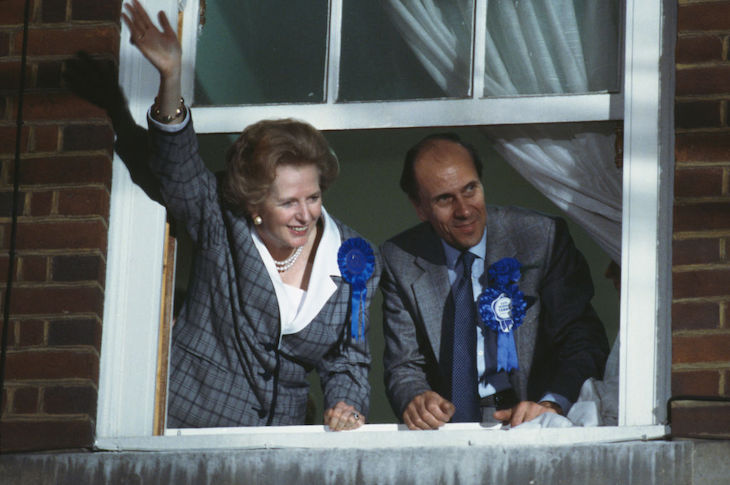The death of Norman Tebbit at the great age of 94 marks a real ending of an era. They simply don’t make politicians like Lord Tebbit any more: caustic, high principled, Tebbit was a fighter rather than a quitter. The modern day Conservative party would be a very different outfit if it had a man like Tebbit in charge. His death is a painful reminder of what the party he was once chairman of has lost.
Tebbit revelled in the insult bestowed on him by Labour leader Michael Foot as a ‘semi-house trained polecat’
Like Nigel Farage, who in many ways is his political successor, Tebbit was an unashamed right winger. He came from a working-class milieu and had a career as an airline pilot and leader of the pilots’ Trade Union Balpa, before entering politics.
He was MP for an Essex seat, Chingford, and revelled in the insult bestowed on him by Labour leader Michael Foot as a ‘semi-house trained polecat’ – a backhanded tribute to Tebbit’s brutal Parliamentary harrying of Labour’s failing governments in the 1970s.
In many ways Tebbit epitomised the right-wing attitudes exemplified by ‘Essex man’: patriotic, hostile to mass immigration, opposed to strikes and trade union militancy, and very hardline on crime and punishment. He took no prisoners politically and was appropriately portrayed as a leather jacketed bovver boy in the TV satire show Spitting Image.
Tebbit was the leading Thatcherite in Mrs Thatcher’s cabinet, and as employment secretary in her first term was her chief ideological ally in her battles with the Tory ‘wets’ who opposed her radical policies. In his most famous speech in that time he attacked rioters, and advised them to get on their bikes and look for work like his own father had done in the 1930s.
But Tebbit’s political career received a brutal blow in 1984 when the IRA bombed the Grand Hotel in Brighton during the Tory party conference. Tebbit was rescued after being buried under rubble for hours, but he was severely injured and never free from pain thereafter. His wife, Margaret, was permanently paralysed.
Although Tebbit remained a frontline minister and played a prominent part in Thatcher’s last election victory in 1987, he retired from active politics in 1992 to care for his wife, and drew much sympathy for his tireless selflessness in looking after her. Iron entered his soul after the Brighton bombing, and understandably he was a fierce and unyielding enemy of appeasing terrorism in Ireland and elsewhere.
A Eurosceptic, Tebbit was a Brexiteer, but privately was a critic of liberal Tories like David Cameron and Boris Johnson whom he felt had betrayed Mrs Thatcher’s legacy. A hard man in public but with a privately tender side, Tebbit was like a fish out of water in the wet world of the 21st century Conservative party.






Comments